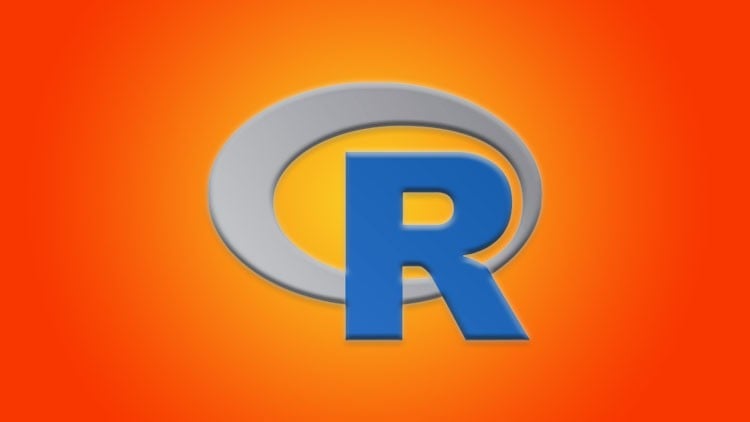
R Programming Language Course Suitable For Everyone, Learn R Data Structures, R Graphics, R Statistical Analysis & Mores
⏱️ Length: 6.4 total hours
⭐ 3.72/5 rating
👥 28,086 students
🔄 March 2024 update
Add-On Information:
Embark on a transformative journey into the world of data science with “R Programming – R Programming Language Beginners to Pro.” This expertly curated course is designed for anyone eager to master R, the leading language for statistical computing and graphics. Whether you’re a complete novice to programming or looking to expand your existing analytical toolkit, this course provides a robust foundation, transforming you from a beginner to a confident R user capable of tackling real-world data challenges.
Note➛ Make sure your 𝐔𝐝𝐞𝐦𝐲 cart has only this course you're going to enroll it now, Remove all other courses from the 𝐔𝐝𝐞𝐦𝐲 cart before Enrolling!
- Course Overview
- This comprehensive yet concise course serves as your definitive gateway to R programming, the cornerstone of modern data analysis and statistical modeling.
- Designed with the absolute beginner in mind, it systematically introduces you to the R ecosystem, from setting up your development environment to executing sophisticated data analysis tasks.
- Beyond just theoretical concepts, the curriculum emphasizes practical application, ensuring you gain hands-on experience by working through diverse examples and case studies.
- You will learn to leverage R’s unparalleled capabilities for data manipulation, insightful statistical exploration, and the creation of compelling data visualizations.
- With an updated curriculum (March 2024), this course ensures you are learning the most relevant and current practices in R programming, preparing you for immediate application in academic or professional settings.
- The structured learning path, totaling 6.4 hours, is efficient and focused, delivering maximum impact without unnecessary jargon or lengthy detours, making complex topics accessible and engaging.
- By the end of this journey, you will not only understand R but also possess the practical skills to confidently apply it to new datasets and analytical problems.
- Requirements / Prerequisites
- Absolutely no prior programming experience or advanced statistical knowledge is necessary; this course starts from the very basics.
- A working computer (Windows, macOS, or Linux) with internet access to download and install R and RStudio (free software).
- Basic computer literacy, including navigating files and folders, and an eagerness to learn and experiment with data.
- A curious mind and a willingness to engage in practical exercises to solidify your understanding of R concepts.
- Skills Covered / Tools Used
- Environment Setup & RStudio Proficiency: Gain expertise in installing R and navigating the RStudio Integrated Development Environment (IDE), optimizing your workflow for efficient coding.
- Fundamental R Syntax & Logic: Master the core building blocks of R programming, including variable assignment, various data types, arithmetic and logical operators, and essential control flow structures like ‘if-else’ statements and ‘for/while’ loops for robust script creation.
- Advanced Data Handling & Manipulation: Develop proficiency in importing diverse data formats (e.g., CSV, Excel, plain text), cleaning messy datasets, handling missing values, and reshaping data for analysis using powerful indexing and subsetting techniques.
- Descriptive & Inferential Statistical Foundations: Apply basic statistical functions to calculate measures of central tendency (mean, median), dispersion (standard deviation, variance), and explore data distributions, laying groundwork for more complex statistical inferences.
- Effective Data Visualization Techniques: Learn to construct a variety of informative plots such as bar charts, pie charts, histograms, box plots, and scatter plots, using R’s base graphics to visually convey insights from your data.
- Modular Code Development: Understand the principles of code reusability by writing your own custom functions, enabling you to automate repetitive tasks and structure your R scripts for clarity and efficiency.
- Real-World Data Application: Gain practical experience in applying R to analyze realistic datasets, moving beyond theoretical examples to solve genuine data challenges encountered in various domains.
- Basic Data Storytelling: Acquire the ability to interpret analytical results and articulate findings effectively through a combination of statistical output and compelling visual representations.
- Benefits / Outcomes
- Launch Your Data Science Journey: Establish a strong foundational understanding of R, enabling you to confidently pursue more advanced topics in data science, machine learning, and statistical modeling.
- Conduct Independent Data Analysis: Acquire the skills to perform basic exploratory data analysis, generate summary statistics, and visualize data trends without external assistance.
- Enhance Problem-Solving Abilities: Develop a systematic approach to breaking down data-related problems and applying R programming to derive data-driven solutions.
- Boost Your Analytical Resume: Add a highly sought-after skill to your professional profile, making you a more competitive candidate for entry-level data analyst, business intelligence, or research roles.
- Gain Confidence with Data: Overcome any initial apprehension about working with data and programming, fostering a confident mindset to manipulate, analyze, and interpret information.
- Prepare for Specialization: Build the necessary prerequisite knowledge for deeper dives into specific statistical methodologies, econometrics, bioinformatics, or data mining using R.
- Efficient Workflow Adoption: Learn best practices for organizing R code, commenting effectively, and debugging, leading to cleaner, more maintainable, and understandable scripts.
- PROS
- Beginner-Friendly Approach: Expertly crafted to welcome individuals with no prior programming experience, ensuring a smooth and comprehensible learning curve.
- Comprehensive Foundation: Covers all essential R programming concepts necessary to build a strong analytical base, from syntax to real-world data application.
- Practical & Hands-On: Emphasizes learning by doing, with numerous examples and exercises that reinforce understanding and build practical skills.
- Up-to-Date Content: Regularly updated (March 2024), ensuring relevance with current R practices and functionalities.
- Affordable & Accessible: High student enrollment and a solid rating indicate a widely accessible and valued educational resource for aspiring data professionals.
- CONS
- The relatively compact duration might mean advanced, niche topics within R programming or deep statistical theory are not explored in extensive detail.
Learning Tracks: English,Development,Web Development
Found It Free? Share It Fast!